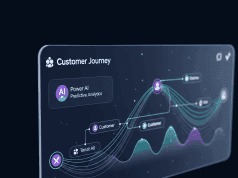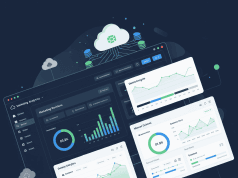In recent years, the digital landscape has been significantly reshaped by growing concerns over data privacy, leading to sweeping changes in how marketers collect and use data. The gradual elimination of third-party cookies, heralded by major changes from tech giants and privacy regulations, has left many marketers scrambling to adapt. This article explores the implications of a cookie-less future for marketing technology (Martech) and outlines strategies for organizations to prepare.
Understanding the Cookie-less Shift
The Role of Cookies in Digital Marketing
Cookies have long been the backbone of online tracking, enabling marketers to gather data on user behavior, personalize marketing campaigns, and optimize advertisements. By tracking users across websites, third-party cookies have allowed for the creation of rich consumer profiles, making targeted advertising more effective.
The Privacy Paradigm Shift
However, rising awareness of digital privacy issues, coupled with strict regulations like the General Data Protection Regulation (GDPR) and the California Consumer Privacy Act (CCPA), has led to a backlash against cookie usage. Consumers are increasingly demanding transparency and control over their data, prompting major browsers like Google Chrome to announce plans for phasing out third-party cookies by 2024.
The Impact on Marketing Technology
Data Collection Challenges
The elimination of third-party cookies poses significant challenges for marketers. Without the ability to track individual user behavior across the web, gathering insights into customer preferences becomes more complex. This shift could hinder targeting precision and the effectiveness of online advertising campaigns.
Changes in Customer Relationship Management (CRM)
Traditionally, CRMs have relied heavily on cookie data to inform marketing strategies. The impending cookie-less future will require organizations to reassess their data-gathering approaches. A focus on first-party data—information collected directly from users through interactions with the brand—will become crucial.
Rethinking Attribution Models
Attribution models that depend on third-party cookies may become less effective. Marketers will need to adopt alternative methods, such as utilizing first-party data or leveraging data alliances between brands that respect privacy guidelines.
Strategies for a Cookie-less Future
Embrace First-Party Data Collection
Organizations should prioritize collecting first-party data, which is not only compliant with privacy regulations but also provides richer insights into customer behavior. Strategies include:
- Interactive Content: Engage users through quizzes, polls, or surveys to gather valuable information.
- Loyalty Programs: Encourage users to sign up for loyalty programs to collect actionable data while offering them incentives.
- Transparent Opt-in Policies: Ensure users understand how their data will be used and give them clear options to opt-in.
Invest in Privacy-First Technologies
As marketers navigate the cookie-less landscape, investing in privacy-centric technologies will be paramount. Tools that utilize machine learning and artificial intelligence can help analyze first-party data more effectively and provide insights that were previously accessible through cookies.
Build Robust Customer Relationships
Developing strong relationships with customers can lead to increased brand loyalty and higher lifetime value. Strategies include:
- Personalized Communication: Use first-party data to tailor email campaigns and communications, ensuring relevance and engagement.
- Feedback Mechanisms: Implement regular feedback loops to understand customer preferences and adjust offerings accordingly.
Collaborate within the Ecosystem
As data privacy regulations evolve, collaboration among brands and across platforms may help mitigate data scarcity issues. Collaborative advertising initiatives can provide aggregated insights while remaining compliant with privacy laws.
Conclusion
The shift away from third-party cookies represents a significant change in the marketing landscape, necessitating a rethinking of data strategies. By embracing first-party data collection, investing in privacy-first technologies, building meaningful customer relationships, and collaborating within the ecosystem, marketers can successfully navigate this evolving terrain.
The cookie-less future may present challenges, but it also opens up opportunities for brands to strengthen their connections with consumers in a more transparent and responsible manner. As regulations continue to shape the digital marketing landscape, those who prioritize privacy and adapt proactively will emerge as leaders in their industries.









